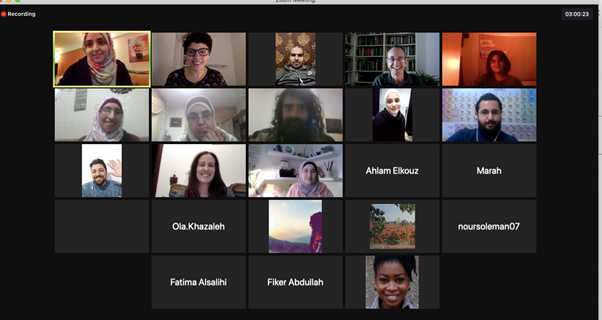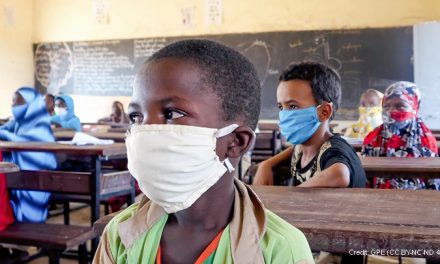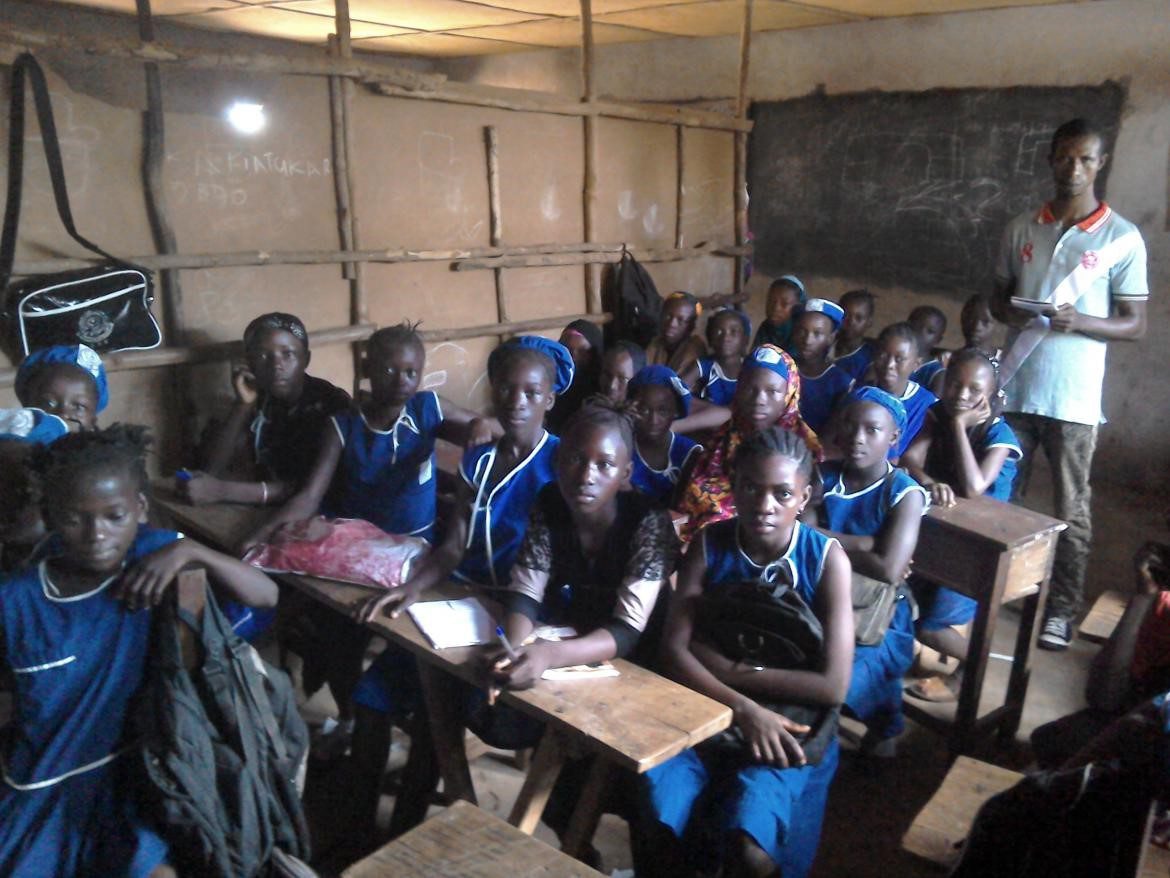This blog post was written by Hannah Gaffey, Communications Consultant at Mosaik Education.
How do you maintain conversational language learning with refugee students when the classroom moves online? This blog post will focus on what we have learnt about programme delivery during this time of change, including some reflections from trainee teachers themselves.
At Mosaik, we created a training course that aims to support English language teachers of refugee youth to maintain the interactive and human side of English language teaching during Covid-19. The training course, funded by the UNHCR Humanitarian Education Accelerator, leverages the ‘Dogme’ approach to English language teaching, which emphasises learner-driven dialogue, avoids over-use of materials and focuses on emergent language in the classroom and learner interests.
Between October 2020 and January 2021, we enrolled 38 trainee teachers (working with 430 students) and are currently delivering the training with our third cohort of 20 English teachers. The training consists of two intensive facilitated sessions (3 hours each) and six weekly ‘Skill Building Sessions’ (1 hour) focussed on supporting teachers to integrate techniques and reflect on practice, delivered via Zoom.
Agency and autonomy is the key to language learning
“This way of teaching is where the student is not the object of the verb to teach, but the subject of the verb to learn” – Scott Thornbury, Teacher trainer
One of the key tenets of Dogme is that students are active participants in the process of language learning and do not want a teacher to just talk at them – and the need for this focus was reflected in feedback from teachers. Teachers told us how their students like to learn and the types of activities that they could use in class to complement this. Many of the teachers chose to use techniques which allowed students to take the lead and actively use their English skills during class. For example, one teacher wrote down sentences containing grammatical mistakes that her students commonly make and asked the students to correct the sentences. She says, “actually, that was so good, because I was shocked, they found the mistakes themselves”.
Remove theory and meet teachers where they are
“It was so practical at first, and not just theoretical information. We do activities together and I then applied these activities with my students and I really see the outcomes. The students like these activities, they became more interactive in the class” – Trainee, Jordan
Whilst rolling out the Dogme training, we have found that it is most beneficial to focus on the practical and applicable language learning techniques that can be used in the classroom, whilst (almost) removing theory. It is still possible to discuss the theoretical elements of the activities by asking questions like “What do you think these activities have in common?”, rather than delivering lectures about the Dogme approach.
When conducting interviews with teachers that have attended the Dogme training, several highlighted that the course content is valuable because of how applicable it is to their virtual classroom context. 100% of the teachers had used the techniques in their classes and 60% used techniques in the majority or all of their classes.
Create space for teachers to share approaches and problems
“You sometimes find someone, [saying] ‘Oh, I got the same problem with my students’. You know what I mean, you feel that we sometimes have the same problem. It’s time to ask your questions and the problems that you face with your students”. – Trainee, Jordan
To complement the training, we created a Community of Practice (CoP) through WhatsApp discussions, Facebook group posts and ‘Skill Building Sessions’ on Zoom. Sharing success stories spurred other teachers on to use those activities in their own virtual classrooms, but perhaps more crucially, the CoP provides a safe space where teachers can share difficulties they are having with a specific aspect of language teaching or a student who is struggling to keep up.
About Mosaik Education
Mosaik is a non-profit organisation that supports refugees to reach university through academic guidance and English language training in Jordan, Lebanon and Turkey. All of our programmes are co-designed with refugees, leverage technology and are open for local community organisations to lead. In 2020, we reached over 300 young people, despite the Covid-19 pandemic. You can follow Mosaik on Twitter, Instagram and Facebook, and sign up to our newsletter here.
If you’re interested in registering for a future cohort of the Dogme training, visit our website for up-to-date announcements or email Miki Aristorenas.





